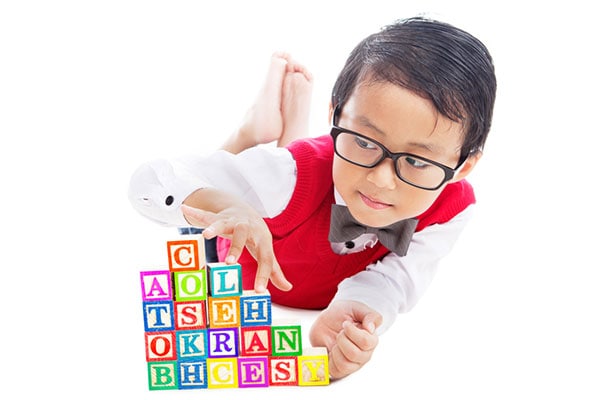5 Ways to Teach Students About Juneteenth
by Connections Academy
by Beth Werrell
5 min to readLearning how to spell can be tedious for kids, and tedium can make anything boring. Every parent is well acquainted with just how little patience most children have for boredom. So ditch the boredom—and the resulting resistance—by "gamifying" spelling exercises. By making learning fun, you increase children’s motivation to do the work. And with their brains more fully engaged, they learn faster.
We’ve put together a list of our favorite spelling games. Pick a few to try with your little learners to see just how much fun building neural pathways can be.
You may have never considered them in this way, but word searches are a good way to teach students the visual appearance of a word. Often, there will be a number of near misses, and your child will have to separate the correct choices from all the mistakes. The word search is a great option for visual learners. If you want to create your own word searches, there are a number of resources that allow you to create them using any words you want, and several of them are free, like the one by Discovery Education.
Similar in concept to word searches, but with an added twist, crossword puzzles are an excellent choice for young readers because they require not only spelling skills (children will trip themselves up if they spell the words incorrectly) but also reading comprehension and problem-solving (in that the crossword clues are similar to riddles). You can also vary the difficulty, making the hints obvious or obscure. If you want a free resource for crossword puzzles, then Discovery Education has your back again with this one.
A good way to test spelling knowledge is to hold a spelling bee. Since it’s not an official competition, you can modify the rules slightly, giving children a chance to rebound from mistakes or keeping a tally of correct answers. That way, nobody is ever eliminated, and everyone gets to feel some accomplishment as they spell some of the words correctly. (Fun little prizes are always a nice surprise, too!)
A classic game, hangman helps kids work together as a team and can help them learn where they’re spelling a word wrong without feeling solely responsible for mistakes. Be sure to incentivize the team by awarding points or handing out some form of reward to get them excited about winning.
Vanishing Man is like hangman in reverse—you break the players into two teams (which can be as small as one player each) and draw stick figures for each team. The goal is to get the stick figure to disappear one body part at a time as the contestants spell words correctly. The team that makes their vanishing man invisible first wins. Feel free to vary the difficulty of words if you have players of different ages and ability levels.
We borrow this one from Deceptively Educational: “Take the traditional game of battleship and turn it into a spelling game.” This is a great choice for groups of children at similar grade levels who can be paired up.
This one, which we found on Learners in Bloom, is great for kids who like to make a little noise. “To play, we turned the words over and the girls (and Mom) took turns picking a word. For each turn, the player [who] picked the word had to sound it out and then jump on the letters in order. I usually called out the phonetic sounds of each letter in order as they jumped, but older kids could be invited to remember the order of the letters themselves by sounding out the word slowly as they jump.” And it’s always great to pair movement and learning!
Another great game for getting the wiggles out, Slap the Word is very simple. Put a group of similarly spelled words on a board, and give two players each a flyswatter. Call out words from the board. Whoever correctly locates and slaps the word wins a point. If you have more than two players, have them take turns to share in the fun.
It’s been said that “good artists borrow; great artists steal” (a quote that, fittingly, has been attributed to nearly every prominent writer). We’re not encouraging the theft of this board game, but we are suggesting that you don’t necessarily have to build your own activity when someone else has done the work for you. Pick up a copy of the game, or pull your old Scrabble board out of the closet, and start playing.
If you want to aim at specific spelling words, try setting up the board with the words partially spelled already, or pick out the letters you give to the players.
This game, which comes by way of Busy Teacher, is a little more free-form and requires the players to have a larger repertoire of words they know how to spell. Take a collection of cups (preferably disposable ones) and write a letter on the bottom of each of them. Then line them up in a grid on a table. Each player takes turns bouncing a Ping-Pong ball into one of the cups. Then the player has to spell a word using the letter on the bottom.
To increase the challenge, see how many words players can spell within a certain amount of time. For larger groups, set up two grids and have two players race to see who can spell a word first.
And there you have it: a variety of fun ways to convince your children to practice their spelling. Feel free to invite the rest of the family or a group of your children’s friends. Odds are, they’ll have so much fun that they won’t even be bothered that they’re learning, which is, of course, the best kind of education.
by Connections Academy
by Cassandra Polzin
by Dan Belenky
